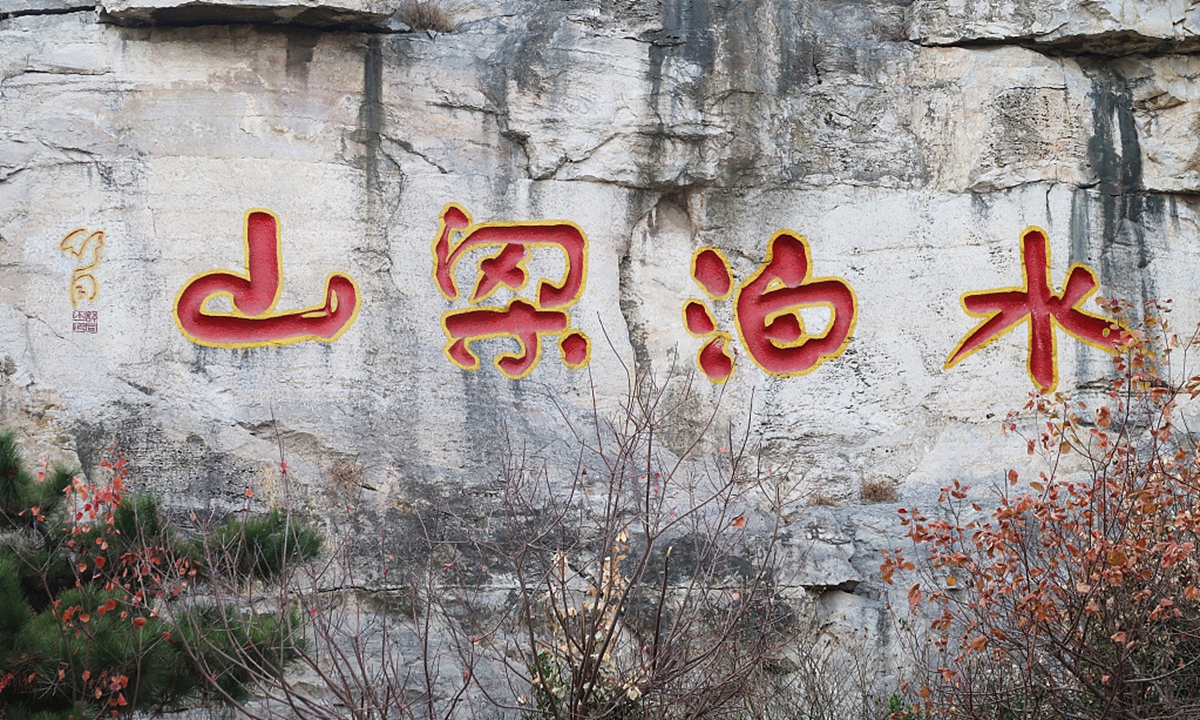ARTS / FILM
Netflix's new adaptation of Chinese literature classic ignites hot discussion online

The photo taken on December 14, 2019 shows Liangshan Mountain in East China's Shandong Province. Photo: CFP
The globally popular US streaming platform Netflix announced its plans to adapt the Chinese literature classic Water Margin on Friday. Netflix called the book one of the "the greatest classic novels of Chinese literature" on Twitter.
The news became a hot topic of discussion on China's Twitter-like Sina Weibo, not only because this Chinese classic will be interpreted by a Japanese director, but also since netizens' expectations are mingled with hope and fear after the poor reception Disney's live action Mulan remake received in China.
The action-adventure saga will be helmed by Japanese director Shinsuke Sato, who is known for his previous films such as action-adventure film Kingdom (2019) and Death Note: Light Up the New World (2016), which was based on the popular Japanese manga series Death Note. The script for the adaptation will be penned by Matthew Sand, who also produced the screenplay for the 2016 disaster film Deepwater Horizon, reported Deadline.
According to Netflix, the film will be made with a "futuristic twist," while Deadline describes the film as an epic action-adventure movie with intrigue and romantic elements and touching on concepts such as loyalty, social responsibility and leadership.
Water Margin is a classic masterpiece known as one of China's "Four Great Novels." The book is one of the first full-length novels written in vernacular Chinese, which depicts the trials and tribulations of 108 men and women who gather at Liangshan mountain during the Song Dynasty (960-1279) to start a revolution and be reborn.
In 1998, the novel was adapted as a 43-episode TV series that left a deep impression on audiences.
"It is a part of my childhood memories. Although it was too complex for children, it is still a classic," wrote a netizen on Sina Weibo.
"It is a classic. No fancy elements and I still can remember the background music that plays when Wu Song comes out," wrote another.
Netflix's plan to adapt the Chinese classic quickly got netizens discussing on Sina Weibo, with the related topic earning more than 80 million views as of Sunday evening. Some netizens were wary of the prospect because the film reminded them of the recent highly controversial Disney film Mulan.
"If they do not include any Chinese film experts, it might be another film like Mulan that misinterprets Chinese culture," a netizen commented on Sina Weibo.
Other netizens expressed their concerns about the film's cultural meaning, setting and theme.
"Foreign producer plus foreign director…This makes it hard for me to believe that the film can show the essence of Chinese culture," and "It is quite a complex story for me and I'm Chinese. It originates in ancient China. This makes the story even harder to be understood," posted two netizens.
"I personally do not mind that it is a Japanese director. I just don't see how a 'futuristic' theme is appealing. It just wants to catch people's attention," said another.
Despite misgivings, there were still some netizens who were optimistic about the film because they believed it could bring classic Chinese culture to the world.
"Is it bad for Chinese culture to be known by the world?" and "Maybe using a Western angle to interpret this great Chinese IP could be very interesting," two netizens commented on Sina Weibo.
